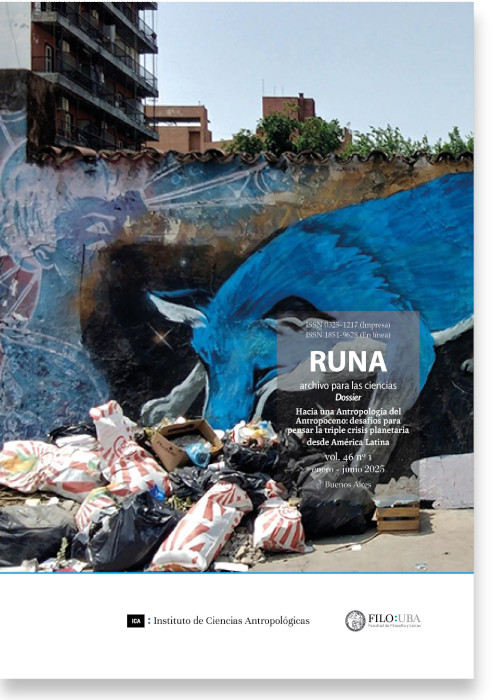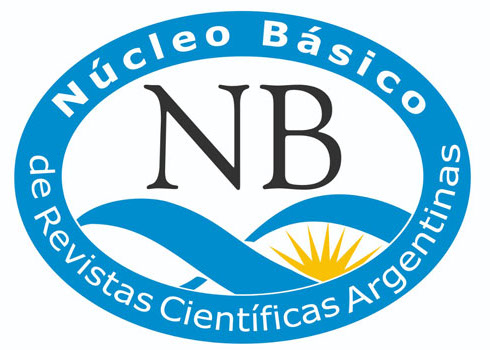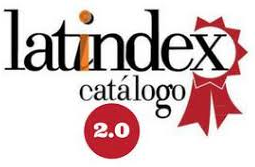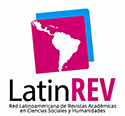The The meaning of "Nature" in its dialectical process of signification
Contributions to the understanding of the environmental crisis.
Abstract
This article inquires into the meaning of the category of "Nature" from a critical examination of the conditions of inquiry in the context of the global environmental crisis. An exploration in a dialectical key is presented from this point of view. The process of historical discontinuity and continuity in the meaning is reconstructed, with the aim of both revealing the range of notions and uses currently associated with "Nature" that constrain the systematic treatment of environmental conflicts and problems, and making these notions intelligible from the understanding of their implicit assumptions and conditions of signification, derived from the dominant historical directions in the interaction with the material surroundings. The historical turning points in meaning will be highlighted by virtue of two dialectical axes: those that have brought associated turns in the conceptualization of the "social", and that have led to reinforce the correspondence between broad epistemological programs of inquiry and economic-political models of governance and transformation of reality.Downloads
References
Agustín de Hipona (2005). The Works of Saint Augustine: A Translation for the 21st Century, Vol.8: On Christian Belief. Hyde Park: New City Press.
Bacon, F. (1949). Novum Organum. Buenos Aires: Losada
Becker, E., Hummel, D. y Jahn, T. (2013). Societal Relations to Nature as a Common Frame of Reference for Integrated Environmental Research. En Groß, M. (ed.). Handbuch Umweltsoziologie. Wiesbaden: VS Verlag für Sozialwissenschaften, 75-96.
Castro, H. (2011). Naturaleza y ambiente. Significados en contexto. En Gurevich, R. (comp.) Ambiente y educación. Una apuesta al futuro. Buenos Aires: Paidós
Coates, P. (2013). Nature: Western Attitudes Since Ancient Times. Cambridge: Polity.
Danowski, D. y de Castro, V. (2019). ¿Hay mundo por venir?: Ensayo sobre los miedos y los fines. Buenos Aires: Caja Negra.
Daston, L. (2019). Against nature. Cambridge: MIT Press
Descola, P. (2012). Más allá de naturaleza y cultura. Buenos Aires: Amorrortu
Douglas, M. (2012). How institutions think. Nueva York.: Syracuse University Press.
Eliade, M. (1980) El mito del eterno retorno. Madrid: Alianza.
Ellen, R. (2001). La geometría cognitiva de la naturaleza. Un enfoque contextual. En Descola P. y Pálsson G. (coords.) Naturaleza y Sociedad. Perspectivas antropológicas. México: Siglo XXI
Escobar, A. (2016). Autonomía y diseño. La realización de lo comunal. Popayán: Universidad del Cauca.
Glacken, C. (1996). Huellas en la playa de Rodas. Naturaleza y cultura en el pensamiento occidental desde la Antigüedad hasta finales del siglo XVIII. Barcelona: Ediciones del Serbal.
Gould, S. J. (1995) La naturaleza amoral. En Dientes de gallina y dedos de caballo. Barcelona: Crítica.
Gudynas, E. (1999). Concepciones de la naturaleza y desarrollo en América Latina.
Persona y Sociedad, 31, 101-125.
Habermas, J. (1999) Teoría y praxis. Barcelona: Altaya.
Harvey, D. (2018). Justicia, naturaleza y la geografía de la diferencia. Madrid: Traficantes de sueños.
Heidegger, M. (1998). On the being and conception of φύσις in aristotle’s physics B, 1. En W. McNeill, (ed.) Pathmarks. Cambridge: Cambridge University Press.
Jameson, F. (2013). Valencias de la dialéctica. Buenos Aires: Eterna Cadencia
Jasanoff, S. (2013). Science and public reason. Londres: Routledge.
Kuhn, T. (1993). La revolución copernicana. Barcelona: Planeta
Latour, B. (2017). Sobre la inestabilidad de la (noción de) naturaleza. En: Cara a cara con el planeta una nueva mirada sobre el cambio climático alejada de las posiciones apocalípticas. Buenos Aires: Siglo Veintiuno.
Longino, H. (1990). Science as social knowledge: Values and objectivity in scientific inquiry. Princeton: Princeton University Press.
Luz, M. (1997). Natural, racional, social. Razón médica y racionalidad científica moderna. Buenos Aires: Lugar editorial
Malthus, T. (2000). Primer ensayo sobre la población. Madrid: Alianza.
Marsh, G. (1965). Man and Nature: Or, Physical Geography as Modified by Human Action. Cambridge: Harvard University Press.
Marcuse, H. (2021). La lucha contra el liberalismo en la concepción totalitaria del Estado. Constelaciones, 13, 487-522.
Marx, K. (2014). Crítica del Programa de Gotha. En H. Tarcus (comp.) Antología (pp. 337-359). Buenos Aires: Siglo XXI
Merchant, C. (2023). La muerte de la naturaleza. Buenos Aires: Siglo XXI
Mill, J. S. (1904). On nature. Recuperado de https://www.lancaster.ac.uk/users/philosophy/texts/mill_on.htm
Milton, K. (2007). Ecologies: anthropology, culture and the environment. International social science journal, 49, pp. 477-495.
Najmanovich, D. (2016). El mito de la objetividad. Buenos Aires: Biblos.
Oelschlaeger, M. (1991). The idea of wilderness: from prehistory to the present. New Haven: Yale University Press
Ojeda, O. & Sánchez, V. (1985). La cuestión ambiental y la articulación sociedad-naturaleza. Estudios sociológicos, 3(7), 25-46.
Ortner, S. (1979). ¿Es la mujer con respecto al hombre lo que la naturaleza a la cultura? En Harris, O. y Young, K (eds.). Antropología y Feminismo. Barcelona: Anagrama
Palacio, G. y Ulloa, A. (eds.) (2002), Repensando la naturaleza. Encuentros y desencuentros disciplinarios en torno a lo ambiental. Bogotá: Universidad Nacional de Colombia.
Palma, H. (2004). Metáforas en la evolución de las ciencias. Buenos Aires: J. Baudino ediciones.
Polanyi, K. (2004). La gran transformación. México: Fondo de cultura económica.
Pratt, M. L. (1997). Ojos imperiales: literatura de viajes y transculturación. Buenos Aires: Universidad Nacional de Quilmes.
Prieto, M. (2018). Los enredos de una taxonomía: sociedades y naturalezas en las fauces de la crisis ambiental. En Palma, H. (edit.) Conexiones y fronteras. Desafíos filosóficos de las ciencias sociales en el siglo XXI. Buenos Aires: Biblos.
Prieto, M. (2022). La ciencia en su razón pública. El modelo de la ciencia sin política. En Palma, H (edit.) Filosofía de las ciencias para el siglo XXI. Nuevos debates y problemas. Buenos Aires: UUIRTO
Prieto, M. (2024). La idea de “crisis ambiental” en la praxis: sentido débil y sentido fuerte. Cuadernos De Pensamiento, 37, 303-333.
Selin, H. (Ed.) (2010). Nature Across Cultures. Dordrecht: Springer.
Soper, K. (1995). What is nature? Culture, politics and the non-human. Oxford: Blackwell.
Svampa, M. (2019). El Antropoceno como diagnóstico y paradigma. Lecturas globales desde el Sur. Utopía y praxis latinoamericana, 24(84), 33-54.
Whitehead, A. N. (1948). Science and the modern world: Lowell lectures. Nueva York: The New American library.
Williams, R. (2000). Naturaleza. En Palabras Clave. Un vocabulario de la cultura y la sociedad. Buenos Aires: Ediciones Nueva Visión.
Wulf, A. (2016). La invención de la Naturaleza. El nuevo mundo de Alexander von Humboldt. Buenos Aires: Tau
Copyright (c) 2025 Martín Prieto

This work is licensed under a Creative Commons Attribution 4.0 International License.

Runa, archivos para las ciencias is a publication of the Instituto de Ciencias Antropológicas, Facultad de Filosofía y Letras, Universidad de Buenos Aires and is distributed under a Creative Commons Attribution 4.0 International License.
Runa maintains its commitment to the policies of Open Access to scientific information, considering that both scientific publications and publicly funded research should circulate on the Internet freely, free of charge and without restrictions.
The contents and opinions expressed in published articles are the sole responsibility of their authors.



















